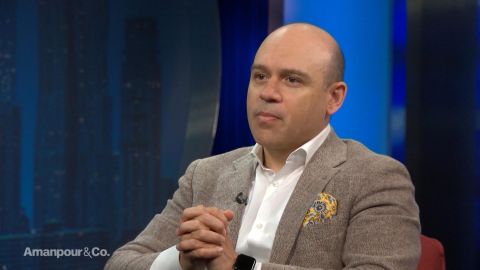Read Transcript EXPAND
CHRISTIANE AMANPOUR: You know, you have been fighting this fight and all fights for women’s rights for so many years. Did you see this coming? In other words, this gradual state-by-state infringement on Roe versus Wade?
GLORIA STEINEM, WOMEN’S RIGHT ACTIVIST: Yes, because we now have majority support for the simple idea that women have control over our own bodies, and a combination of profound sexism, which doesn’t recognize that a woman’s life is a human life, and racism, and concern over the fact that White women are having fewer births than women of color, in general, has brought this forward. It is very much an exercise of the White nationalists here.
AMANPOUR: Gloria, I’m actually fascinated to hear you put it in that political context because what most of those people who will say who defend those laws is that we believe in the sanctity of life no matter how, what or where it starts, even in cases of rape or incest. But you’re saying it’s a much more patriarchal, and you have just said racist, demographic, political power tool.
STEINEM: Yes. I mean, historically two things have happened, that is abortion has been restricted and for women of color, sterilization has been encouraged. I mean, I remember very well going to interview Fannie Lou Hamer, a great civil rights worker, who had been sterilized in a southern hospital where she went for other procedures without her knowledge. So, this is patriarchal in the sense that the only thing that men cannot control is birth, because they don’t have wombs. So, it is fundamentally patriarchal and profoundly racist.
About This Episode EXPAND
Christiane Amanpour speaks with Jim Sciutto about U.S./China relations; and Gloria Steinem and David Eisenberg about the Alabama abortion ban. Hari Sreenivasan speaks with Raj Kumar about the Trump administration’s immigration plans and the humanitarian crisis developing on the United States’ southern border.
LEARN MORE



